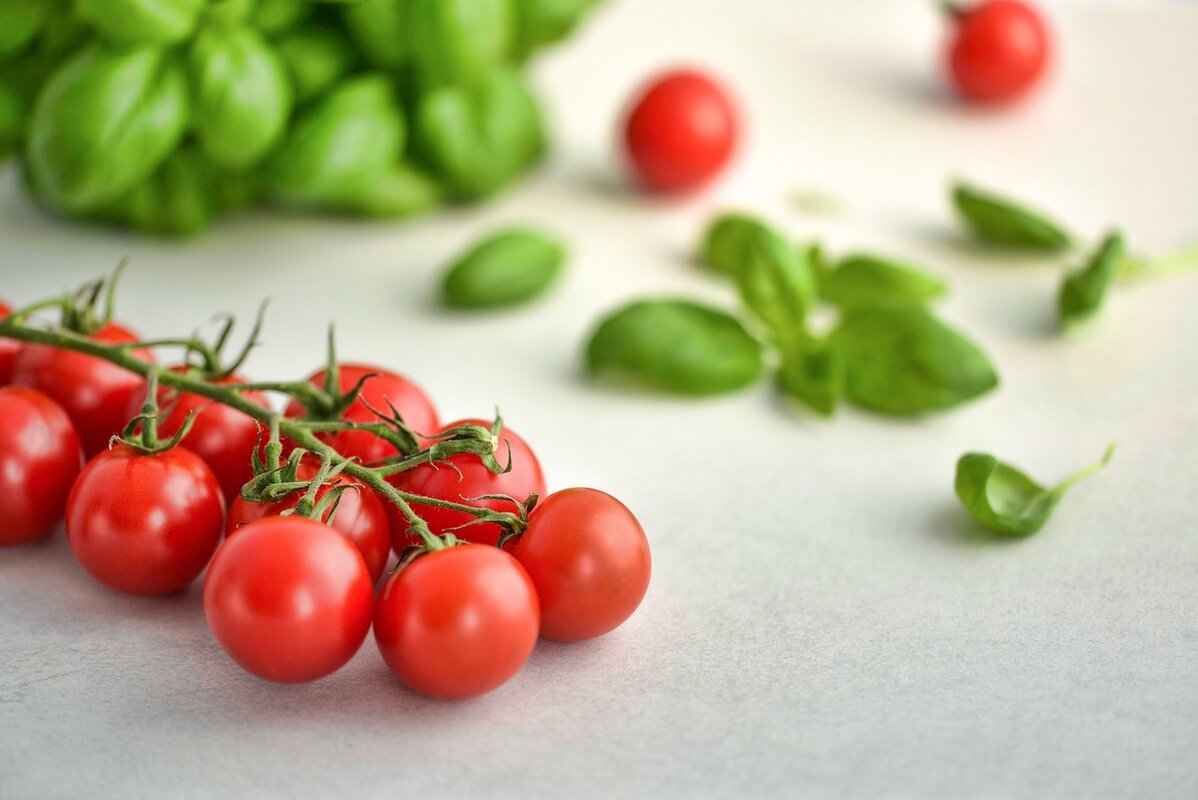The Chinese and Thai Vegetarian Festival is a vibrant celebration that showcases the rich culinary traditions of both cultures. This annual event not only highlights a variety of vegetarian dishes but also emphasizes the cultural significance and the lively celebrations that accompany it. The festival, deeply rooted in religious beliefs, serves as a time for reflection, health, and purification through vegetarianism.
This festival is celebrated primarily in the ninth lunar month and is marked by a commitment to vegetarianism, with participants engaging in various rituals that honor deities. It is a time when communities come together to promote health and spiritual well-being, often involving colorful processions and offerings.
During the festival, a plethora of vegetarian dishes is showcased, highlighting fresh vegetables, tofu, and unique seasonings. These dishes not only appeal to vegetarians but also attract food enthusiasts eager to explore new flavors.
Chinese cuisine during the festival includes traditional dishes such as Buddha’s Delight and various mock meats. These dishes replicate the taste and texture of meat using plant-based ingredients, allowing everyone to enjoy a fulfilling meal.
Buddha’s Delight is a staple during the festival, consisting of mixed vegetables, tofu, and sometimes rice or noodles. It symbolizes abundance and harmony, making it a cherished dish among festival-goers.
Mock meats are skillfully crafted using gluten or soy products, seasoned expertly to mimic the flavors of meat. This allows participants to indulge in traditional dishes while adhering to vegetarian principles.
Thai cuisine offers a burst of flavors and aromatic herbs, with dishes like Pad Thai and Green Curry made vegetarian. These dishes frequently feature tofu and an array of fresh vegetables, providing a delightful culinary experience.
The celebrations during the festival include vibrant processions, street fairs, and food stalls, creating an atmosphere of joy and community spirit. People come together to honor their traditions and enjoy a variety of vegetarian dishes.
Rituals during the festival often involve prayers and offerings to deities, seeking blessings for health and prosperity. These practices not only enhance spiritual connection but also foster a strong sense of community.
Local communities engage in the festival by organizing events, cooking traditional dishes, and participating in parades. This active involvement showcases their cultural heritage and promotes the values of vegetarianism.
Participating in the festival encourages a plant-based diet, which is linked to numerous health benefits, including a reduced risk of chronic diseases and improved overall well-being. This aspect of the festival resonates with many who seek to enhance their health through dietary choices.
A vegetarian diet rich in fruits, vegetables, whole grains, and legumes can significantly enhance cardiovascular health, support weight management, and provide essential nutrients necessary for a balanced lifestyle.
While enjoying the festival, it’s crucial to ensure a balanced intake of protein, vitamins, and minerals, especially for those who may be new to vegetarianism. This awareness helps participants maintain optimal health throughout the celebrations.
The Chinese and Thai Vegetarian Festival plays a vital role in preserving cultural identity, fostering community ties, and promoting the values of compassion and mindfulness. It serves as a reminder of the importance of respecting all living beings.
The emphasis on vegetarianism during the festival aligns with principles of compassion towards all living beings, reinforcing cultural beliefs about respect for life and health.
Community participation is essential, as it strengthens bonds among members and allows for the sharing of traditions, recipes, and experiences that enrich cultural heritage. This collective effort ensures the festival remains a vibrant and meaningful celebration.

What is the Chinese & Thai Vegetarian Festival?
The Chinese & Thai Vegetarian Festival is an annual celebration that reflects deep-rooted religious traditions, emphasizing the importance of vegetarianism as a means of promoting health and spiritual purification. This vibrant festival is not just a culinary event; it is a time for communities to come together, honoring their cultural heritage through various rituals, processions, and offerings to deities.
During the festival, participants adhere to a strict vegetarian diet, which is believed to cleanse the body and soul. This observance is linked to the belief in the Nine Emperor Gods, where devotees seek blessings for health, prosperity, and spiritual enlightenment. The festival typically lasts for nine days, during which participants engage in various activities aimed at fostering a sense of community and spiritual connection.
Rituals play a pivotal role in the festival, combining traditional practices with spiritual significance. Participants often partake in prayers and offerings to deities, seeking their blessings. These rituals may include:
- Processions: Colorful parades featuring participants dressed in traditional attire, often with elaborate decorations and music.
- Offerings: Devotees present fruits, vegetables, and symbolic items at temples, expressing gratitude and seeking divine favor.
- Purification Rites: Engaging in cleansing rituals to prepare the mind and body for the festival.
The culinary aspect of the festival is as rich as its cultural significance. A diverse array of vegetarian dishes is showcased, highlighting the use of fresh vegetables, tofu, and unique seasonings. Some popular dishes include:
- Buddha’s Delight: A harmonious mix of vegetables and tofu, symbolizing balance and abundance.
- Mock Meats: Plant-based alternatives crafted to replicate the taste and texture of meat, allowing participants to enjoy traditional flavors while adhering to vegetarian principles.
- Thai Green Curry: Made with aromatic herbs and vegetables, this dish is a favorite among festival-goers.
Communities play a vital role in the festival, organizing events that foster unity and cultural pride. Local temples often serve as the hub for activities, where people gather to:
- Cook Traditional Dishes: Community members come together to prepare meals, sharing recipes and culinary techniques.
- Participate in Parades: Street processions showcase traditional costumes and cultural performances, drawing crowds and engaging the public.
- Host Food Stalls: Local vendors set up stalls offering a variety of vegetarian delicacies, inviting everyone to partake in the festivities.
Embracing a vegetarian diet during the festival brings numerous health benefits. Research has shown that a plant-based diet can lead to:
- Improved Heart Health: A diet rich in fruits, vegetables, and whole grains supports cardiovascular health.
- Weight Management: Plant-based diets are often lower in calories, making it easier to maintain a healthy weight.
- Enhanced Nutrient Intake: Vegetarians often consume more vitamins and minerals essential for overall well-being.
In conclusion, the Chinese & Thai Vegetarian Festival is a vibrant celebration that encapsulates the essence of community, spirituality, and health. By participating in this festival, individuals not only honor their cultural traditions but also embrace a lifestyle that promotes well-being and compassion towards all living beings.

What Dishes are Featured in the Festival?
The Chinese & Thai Vegetarian Festival is a vibrant celebration that showcases the rich culinary traditions of both cultures. One of the highlights of this festival is the diverse array of vegetarian dishes that are prepared and enjoyed by festival-goers. This section delves into the delightful offerings that not only cater to vegetarians but also attract a broader audience of food enthusiasts eager to explore new flavors.
The festival features a plethora of vegetarian dishes, emphasizing the use of fresh vegetables, tofu, and unique seasonings that elevate the dining experience. These dishes are carefully crafted to highlight the natural flavors of the ingredients while ensuring they are appealing to both vegetarians and non-vegetarians alike.
- Stir-Fried Vegetables: A colorful medley of seasonal vegetables stir-fried with aromatic garlic and ginger, often served with a splash of soy sauce.
- Tofu Dishes: Tofu is a staple during the festival, prepared in various styles such as crispy fried tofu or braised tofu in savory sauces.
- Vegetarian Dumplings: These dumplings are filled with a mixture of chopped vegetables and mushrooms, steamed or pan-fried to perfection.
- Mock Meat Dishes: Utilizing plant-based proteins, these dishes mimic the taste and texture of traditional meat, allowing for a familiar yet vegetarian experience.
- Rice and Noodle Dishes: From fragrant fried rice to savory noodle soups, these dishes are often enhanced with a variety of vegetables and spices.
One of the most popular dishes during the festival is Buddha’s Delight, a symbolic dish representing abundance and harmony. This dish typically includes a mix of vegetables, tofu, and sometimes rice or noodles, all prepared with a delicate balance of flavors.
Moreover, the festival also showcases Thai-inspired vegetarian dishes that are known for their vibrant flavors and aromatic herbs. Dishes such as Pad Thai and Green Curry are made vegetarian by substituting meat with tofu and an array of fresh vegetables, ensuring that they remain true to their roots while catering to the dietary preferences of attendees.
As the festival progresses, food stalls and vendors become bustling hubs of activity, where attendees can sample these delectable dishes. The emphasis on fresh ingredients and bold flavors not only satisfies the taste buds but also promotes the idea of healthy eating. The festival serves as a platform for chefs and home cooks alike to showcase their culinary skills, often incorporating traditional recipes passed down through generations.
In addition to the delicious food, the festival also emphasizes the importance of community and togetherness. Families and friends gather to share meals, fostering a sense of unity and celebration. This communal aspect of dining enhances the overall experience, making the festival not just about food, but also about connection and cultural heritage.
Ultimately, the Chinese & Thai Vegetarian Festival is a celebration of flavors, culture, and community. The diverse vegetarian dishes featured during this event not only cater to those following a vegetarian lifestyle but also invite everyone to indulge in the rich culinary traditions that define these cultures.
Popular Chinese Vegetarian Dishes
Chinese cuisine offers a diverse array of vegetarian dishes, particularly during the Chinese and Thai Vegetarian Festival. This celebration not only highlights the importance of vegetarianism but also showcases the rich cultural heritage associated with these culinary traditions. Below, we explore some of the most popular vegetarian dishes that grace the tables during this vibrant festival.
Buddha’s Delight, known as Luohan Zhai in Mandarin, is a quintessential dish served during the festival. This traditional stir-fry is a medley of mixed vegetables, tofu, and sometimes rice or noodles. It symbolizes abundance and harmony in life, making it a favored choice among festival-goers. The dish typically includes ingredients such as shiitake mushrooms, snow peas, carrots, and bamboo shoots, all cooked in a light soy or vegetable sauce, providing a delightful and nutritious meal.
Mock meats play a significant role in the vegetarian offerings during the festival. These plant-based alternatives are crafted from gluten, soy products, or legumes, expertly seasoned to replicate the taste and texture of traditional meats. Dishes like mock duck or mock chicken allow participants to indulge in familiar flavors while adhering to vegetarian principles. The preparation of mock meats involves marinating and cooking techniques that enhance their flavor, making them a popular choice for both vegetarians and meat-eaters alike.
- Vegetable Spring Rolls: Crispy and filled with a variety of vegetables, these rolls are a staple appetizer during the festival.
- Tofu Stir-Fry: A colorful mix of seasonal vegetables and tofu sautéed with garlic and ginger, often served with rice.
- Vegetarian Dumplings: These delightful dumplings can be steamed or pan-fried, filled with a mixture of vegetables and sometimes mushrooms.
- Mapo Tofu: A spicy dish made with silken tofu and a rich, flavorful sauce, perfect for those who enjoy a bit of heat.
The preparation of these vegetarian dishes often emphasizes freshness and seasonality. Chefs typically source local vegetables and herbs, ensuring that the dishes are not only flavorful but also nutritious. The use of traditional cooking methods, such as steaming, stir-frying, and braising, helps to retain the natural flavors and textures of the ingredients.
Each dish served during the festival carries a deeper meaning, often reflecting themes of purity, health, and compassion towards all living beings. These culinary traditions not only provide sustenance but also foster a sense of community and shared values among participants. By embracing vegetarianism, festival-goers honor their cultural heritage while promoting a lifestyle that is beneficial for both health and the environment.
In conclusion, the variety of vegetarian dishes featured during the Chinese and Thai Vegetarian Festival showcases the rich culinary traditions that define this celebration. From Buddha’s Delight to mock meats, each dish contributes to the festival’s vibrant atmosphere, inviting everyone to partake in the joy of plant-based eating.
What is Buddha’s Delight?
Buddha’s Delight, known as “Lo Han Jai” in Chinese, is a beloved dish that holds a special place during the Chinese and Thai Vegetarian Festival. This dish is not merely a meal; it is a vibrant representation of the festival’s core values, symbolizing abundance and harmony in life. Traditionally enjoyed by devotees, it consists of a colorful medley of mixed vegetables, tofu, and sometimes served with rice or noodles. Each ingredient is chosen not only for its flavor but also for its significance in promoting health and well-being.
At its essence, Buddha’s Delight is a celebration of the natural bounty that the earth offers. The dish typically features a variety of vegetables such as bok choy, shiitake mushrooms, and carrots, all cooked to perfection. Tofu, often marinated or stir-fried, adds a rich source of protein, making this dish both nutritious and satisfying. The use of rice or noodles is optional but adds a comforting element that enhances the overall experience.
During the festival, the preparation of Buddha’s Delight becomes a communal activity, where families and friends gather to share recipes and cooking techniques. This not only strengthens bonds among participants but also fosters a sense of community and shared purpose. The act of cooking and sharing this dish is a ritual in itself, reflecting the festival’s emphasis on purity and spirituality.
In addition to its nutritional benefits, Buddha’s Delight is rich in symbolism. Each vegetable and ingredient is believed to carry its own significance. For example, lotus roots are often included to symbolize purity and enlightenment, while black fungus is thought to bring good fortune. The incorporation of these ingredients into the dish helps participants connect with their cultural heritage and spiritual beliefs.
Moreover, Buddha’s Delight serves as a reminder of the importance of a plant-based diet. As more people become aware of the health benefits associated with vegetarianism, dishes like Buddha’s Delight are gaining popularity beyond the festival. The emphasis on fresh, wholesome ingredients aligns with contemporary health trends, encouraging individuals to embrace more plant-based meals in their daily lives.
As the festival approaches, many restaurants and food stalls begin to feature their own interpretations of Buddha’s Delight, each adding a unique twist to this traditional dish. Some may incorporate local vegetables or spices, while others may focus on presentation, making it not only a treat for the palate but also a feast for the eyes.
In conclusion, Buddha’s Delight is more than just a dish; it is a cultural artifact that embodies the spirit of the Chinese and Thai Vegetarian Festival. Through its preparation and consumption, it promotes values of community, health, and spirituality, making it a vital part of the celebration. Whether enjoyed during the festival or as a part of everyday meals, Buddha’s Delight continues to inspire and nourish those who partake in its rich flavors and profound meanings.
How are Mock Meats Prepared?
Mock meats have gained immense popularity, especially during the Chinese and Thai Vegetarian Festival, where they serve as a delicious alternative for those who wish to enjoy traditional meat dishes without compromising their vegetarian values. These innovative products are designed to closely resemble the taste and texture of real meat, allowing participants to indulge in their favorite meals while adhering to a vegetarian lifestyle.
Mock meats are primarily crafted using soy, gluten, and other plant-based ingredients. Soy products, such as tofu and tempeh, are rich in protein and possess a texture that can be easily manipulated to resemble meat. Gluten, derived from wheat, is another popular base for mock meats, known for its chewy consistency that closely mimics the texture of various meats.
The secret to the success of mock meats lies in the seasoning. A variety of spices, marinades, and sauces are used to enhance the flavor, making them indistinguishable from their meat counterparts. Common seasonings include:
- Soy sauce – adds umami flavor
- Garlic and ginger – provide aromatic depth
- Five-spice powder – offers a complex flavor profile
- Chili paste – adds heat and zest
These ingredients are often combined in marinades that allow the mock meats to soak up the flavors, resulting in a savory and satisfying dish.
Mock meats can be prepared using various cooking methods to enhance their flavor and texture. Some popular techniques include:
- Grilling – imparts a smoky flavor and crispy exterior
- Stir-frying – quick cooking method that retains nutrients
- Steaming – preserves moisture and tenderness
- Baking – allows for a healthier preparation with less oil
Each method brings out different qualities in the mock meats, making them suitable for a wide range of dishes.
During the festival, mock meats are featured in many traditional dishes. They can be found in:
- Stir-fried noodles – adding protein to a classic dish
- Curries – providing a hearty base that absorbs the rich flavors
- Sandwiches – served in buns with fresh vegetables and sauces
These dishes not only satisfy the cravings of vegetarians but also appeal to meat-lovers who are curious about plant-based alternatives.
Incorporating mock meats into a vegetarian diet offers several benefits. They are a great source of protein, essential for maintaining muscle mass and overall health. Additionally, mock meats are often lower in fat and calories compared to traditional meats, making them a healthier option. For those looking to reduce their environmental impact, choosing mock meats can help lower carbon footprints associated with meat production.
Mock meats play a crucial role in the Chinese and Thai Vegetarian Festival by providing an inclusive option that allows everyone to enjoy the festivities. They symbolize the festival’s core values of compassion and mindfulness towards all living beings, making it easier for individuals to participate in the celebration while adhering to their dietary preferences.
In conclusion, mock meats are a versatile and flavorful addition to the vegetarian menu during the festival. Their ability to mimic traditional meat dishes not only satisfies the palate but also supports the festival’s ethos of promoting vegetarianism and healthy living.
Popular Thai Vegetarian Dishes
Thai cuisine is renowned for its vibrant flavors and the use of aromatic herbs, making it a favorite among food enthusiasts worldwide. During the Chinese and Thai Vegetarian Festival, traditional dishes are reimagined to cater to vegetarian diets, providing a delightful experience for all. The festival highlights a variety of popular Thai vegetarian dishes that showcase the rich culinary heritage of Thailand.
Thai vegetarian dishes are characterized by their balance of flavors, including sweet, sour, salty, and spicy elements. This harmonious blend is achieved through the use of fresh ingredients such as tofu, an array of seasonal vegetables, and a variety of herbs like basil and coriander. The emphasis on freshness not only enhances the taste but also supports a healthy lifestyle.
- Pad Thai: This iconic dish can easily be transformed into a vegetarian delight by substituting shrimp or chicken with tofu and adding a medley of vegetables such as carrots and bean sprouts. The dish is typically garnished with crushed peanuts and lime, providing a refreshing finish.
- Green Curry: Known for its creamy coconut base and aromatic spices, vegetarian green curry features tofu and a colorful assortment of vegetables like bell peppers and eggplant. This dish is both hearty and satisfying, perfect for those seeking comfort food.
- Som Tum (Green Papaya Salad): A refreshing salad made from shredded green papaya, tomatoes, and green beans, tossed with a zesty dressing of lime juice, chili, and peanuts. This dish is a staple during the festival and offers a perfect balance of flavors.
- Massaman Curry: This rich and mildly spicy curry is made with coconut milk, potatoes, and peanuts, and can be prepared with tofu instead of meat. The unique blend of spices gives it a distinct flavor that is both comforting and aromatic.
Preparation techniques for Thai vegetarian dishes often involve stir-frying, steaming, or simmering to retain the nutrients and flavors of the ingredients. Many recipes incorporate traditional Thai spices such as lemongrass, galangal, and kaffir lime leaves, which contribute to the authentic taste. Additionally, the use of soy sauce and vegetarian oyster sauce adds depth to the dishes without compromising their vegetarian status.
The popularity of Thai vegetarian dishes during the festival can be attributed to their diverse flavors and the emphasis on health-conscious eating. Many attendees are drawn to the festival not only for the cultural significance but also for the opportunity to explore new and exciting flavors. Vegetarian dishes provide a delicious alternative that appeals to both vegetarians and non-vegetarians alike.
Thai vegetarian dishes are often rich in nutrients and low in unhealthy fats, making them an excellent choice for those looking to maintain a balanced diet. The incorporation of fresh vegetables and plant-based proteins contributes to overall health, promoting a diet that can help reduce the risk of chronic diseases.
Attendees of the Chinese and Thai Vegetarian Festival can enjoy these dishes at various food stalls and restaurants participating in the celebrations. Many vendors offer samples and full portions, allowing visitors to experience the diversity of Thai vegetarian cuisine. It’s an opportunity to indulge in delicious food while embracing the festive spirit.
In conclusion, the Thai Vegetarian Festival presents a unique opportunity to explore the rich flavors and culinary traditions of Thailand. With dishes like Pad Thai and Green Curry, attendees are sure to find a delightful array of vegetarian options that celebrate both health and culture.

How is the Festival Celebrated?
The Chinese and Thai Vegetarian Festival is a vibrant celebration that captivates both locals and visitors alike. This annual event is not just about food; it embodies the spirit of community, cultural heritage, and a commitment to vegetarianism. As the festival unfolds, the streets come alive with a kaleidoscope of colors, sounds, and aromas, creating an atmosphere that is both festive and spiritually enriching.
During the festival, a variety of activities are organized to engage the community and celebrate the essence of vegetarianism. The festivities typically include:
- Vibrant Processions: Grand parades featuring elaborate floats and participants dressed in traditional attire march through the streets, showcasing cultural heritage and devotion.
- Street Fairs: These fairs transform public spaces into bustling hubs of activity, offering a wide range of vegetarian dishes, crafts, and cultural performances.
- Food Stalls: Local vendors set up stalls that serve an array of delicious vegetarian dishes, from traditional favorites to innovative culinary creations, allowing attendees to indulge in a variety of flavors.
The festival serves as a unifying force, bringing together people from diverse backgrounds. Community members actively participate in various ways:
- Organizing Events: Local organizations and volunteers work tirelessly to plan and execute events that reflect the community’s values and traditions.
- Cooking Traditional Dishes: Families and friends gather to prepare traditional vegetarian dishes, sharing recipes and stories that reinforce cultural bonds.
- Participating in Parades: Many community members take part in parades, showcasing their dedication to vegetarianism and cultural heritage through enthusiastic displays.
The festival is rich in rituals that deepen the spiritual connection of participants. Key rituals include:
- Prayers and Offerings: Devotees offer prayers and food to deities, seeking blessings for health, prosperity, and a peaceful life.
- Community Gatherings: These gatherings foster a sense of belonging, as people come together to share their experiences, thoughts, and aspirations.
- Mindfulness Practices: Many participants engage in meditation and reflection, emphasizing the festival’s focus on health and well-being.
The Chinese and Thai Vegetarian Festival plays a crucial role in preserving cultural identity. It reinforces the importance of vegetarianism as a lifestyle choice that aligns with values of compassion and respect for life. The festival reminds participants of their roots and the significance of their traditions, fostering a sense of pride and belonging within the community.
Community participation is essential for the festival’s success. It strengthens bonds among members and allows for the sharing of traditions, recipes, and experiences. This collective effort not only enhances the festival’s vibrancy but also enriches the cultural heritage of the community, ensuring that these traditions are passed down through generations.
In conclusion, the Chinese and Thai Vegetarian Festival is a multifaceted celebration that goes beyond culinary delights. It is a time for communities to unite, honor their traditions, and promote a lifestyle that values health and compassion. Through vibrant processions, engaging activities, and meaningful rituals, the festival embodies the spirit of togetherness and cultural pride.
What Rituals are Performed?
The Chinese and Thai Vegetarian Festival is not just a celebration of food; it is a profound spiritual event that includes a variety of rituals aimed at honoring deities and fostering a sense of community. During this festival, participants engage in meaningful practices that reflect their cultural and religious beliefs.
Rituals during the festival often involve prayers and offerings to deities, seeking blessings for health and prosperity. These practices are deeply rooted in tradition and serve to strengthen the spiritual connection among community members. The rituals vary from region to region, but they generally share common elements that highlight their significance.
- Prayers and Meditations: Participants often gather at temples to engage in prayers and meditative practices. This time allows individuals to reflect on their lives and seek guidance from the deities.
- Offerings of Food: Offerings typically include an array of vegetarian dishes, fruits, and flowers. These offerings are presented with respect and gratitude, symbolizing the community’s devotion and desire for divine blessings.
- Processions: Colorful processions are a hallmark of the festival, where participants dress in traditional attire and carry offerings to the temple. These vibrant displays create a festive atmosphere and encourage community participation.
- Incense Burning: Burning incense is a common ritual during the festival. It is believed to purify the space and invite positive energies, creating a sacred environment for worship.
These rituals foster a sense of community and spiritual connection, as they bring people together in shared beliefs and practices. The act of participating in these rituals not only enhances individual spirituality but also strengthens communal ties.
The offerings made during the festival are not merely acts of devotion; they are also a reflection of cultural values. The choice of foods and the manner in which they are presented signify respect for nature and the importance of gratitude. For instance, fruits and vegetables are often chosen for their symbolism of abundance and fertility.
- Symbolism of Foods: Each food item has its own significance. For example, oranges symbolize good luck, while rice represents sustenance and prosperity.
- Community Involvement: The preparation of offerings is often a communal activity, where families and friends come together to cook and share recipes passed down through generations.
Through these practices, participants not only seek blessings for themselves but also for their families and the larger community. This collective approach to spirituality reinforces the belief that well-being is interconnected.
Processions are a vibrant aspect of the festival, serving multiple purposes. They are not only a form of worship but also a way to showcase cultural heritage and community spirit. During these processions, participants carry colorful banners, musical instruments, and elaborate floats that depict various deities.
- Cultural Expression: The processions allow communities to express their cultural identity, showcasing traditional music, dance, and attire.
- Spiritual Significance: Each step taken during the procession is considered a step toward spiritual purification and enlightenment.
As participants move through the streets, they invite others to join in the festivities, creating a sense of inclusivity and shared joy. This aspect of the festival not only celebrates vegetarianism but also promotes a collective spirit of compassion and mindfulness.
In summary, the rituals performed during the Chinese and Thai Vegetarian Festival are essential for fostering community ties and spiritual connections. Through prayers, offerings, and processions, participants engage in practices that reflect their cultural values and beliefs, enriching the festival experience for all involved.
How Do Communities Participate?
The Chinese and Thai Vegetarian Festival is not just a celebration of vegetarianism; it is a vibrant expression of community spirit and cultural heritage. As local communities engage in this festival, they bring their unique flavors, traditions, and enthusiasm, creating an atmosphere filled with joy and unity. This article explores how communities participate in the festival, emphasizing the significance of their involvement.
During the festival, local communities play a crucial role in organizing a variety of events that highlight their cultural identity and promote vegetarianism. Their participation can be categorized into several key activities:
- Organizing Events: Communities come together to organize events that include cooking competitions, cultural performances, and educational workshops. These events not only entertain but also educate participants about the benefits of a vegetarian lifestyle.
- Cooking Traditional Dishes: One of the most significant aspects of the festival is the preparation of traditional vegetarian dishes. Local chefs and home cooks alike showcase their culinary skills by preparing popular dishes such as Buddha’s Delight and Pad Thai, using fresh, local ingredients.
- Participating in Parades: Colorful parades are a highlight of the festival, where community members dress in traditional attire and carry banners that celebrate their cultural heritage. These parades not only attract locals but also tourists, enhancing the visibility of the festival.
- Setting Up Food Stalls: Street food plays a vital role in the festival, with numerous food stalls offering a variety of vegetarian delicacies. Local vendors take pride in serving dishes that reflect their cultural background, allowing festival-goers to experience the richness of their cuisine.
- Hosting Cultural Workshops: Many communities organize workshops that teach attendees about the significance of the festival, the health benefits of vegetarianism, and how to prepare traditional dishes. These workshops foster a deeper understanding of the cultural and spiritual aspects of the festival.
The participation of local communities is not merely about food and festivities; it also serves as a platform for fostering social bonds and reinforcing cultural values. By engaging in these activities, community members share their traditions and culinary practices with younger generations, ensuring that their heritage is preserved.
Community participation in the festival is essential for several reasons:
- Preservation of Culture: The festival provides an opportunity for communities to showcase their unique cultural practices, ensuring that traditions are passed down through generations.
- Strengthening Community Bonds: Working together to organize events fosters a sense of belonging and unity among community members. It encourages collaboration and mutual support, which are vital for community resilience.
- Promoting Vegetarianism: By actively participating in the festival, communities promote the benefits of a vegetarian diet, raising awareness about health and environmental issues associated with meat consumption.
- Encouraging Inclusivity: The festival attracts people from various backgrounds, creating an inclusive environment where everyone can learn about and appreciate different cultures.
In conclusion, the active involvement of local communities in the Chinese and Thai Vegetarian Festival is a testament to the rich cultural tapestry that defines these celebrations. Through organizing events, cooking traditional dishes, and participating in parades, community members not only showcase their heritage but also promote a lifestyle that values health, compassion, and sustainability.

What Health Benefits are Associated with the Festival?
The Chinese and Thai Vegetarian Festival is not only a vibrant celebration of culture and tradition but also a significant opportunity to promote health through a plant-based diet. As participants indulge in a variety of vegetarian dishes, they embrace numerous health benefits that come with this lifestyle choice.
Participating in the festival encourages a plant-based diet, which has been linked to numerous health benefits. The emphasis on vegetarianism during this time promotes not only a deeper connection to cultural practices but also supports overall well-being. Here are some key health benefits associated with a plant-based diet celebrated during the festival:
- Reduced Risk of Chronic Diseases: Research indicates that a diet rich in fruits, vegetables, and whole grains can significantly lower the risk of chronic diseases such as heart disease, diabetes, and certain cancers. By prioritizing plant-based foods, festival participants can take proactive steps towards better health.
- Improved Digestive Health: A vegetarian diet is typically high in dietary fiber, which aids in digestion and promotes a healthy gut. Foods such as legumes, whole grains, and vegetables are staples during the festival, contributing to improved digestive function.
- Weight Management: Many individuals find that adopting a plant-based diet helps in maintaining a healthy weight. The lower calorie density of most plant foods allows for larger portion sizes without excessive calorie intake, making it easier to manage weight effectively.
- Enhanced Nutrient Intake: Vegetarian diets are often rich in essential nutrients such as vitamins C and E, folate, and magnesium, which are crucial for maintaining energy levels and overall health. The variety of dishes available during the festival ensures participants receive a wide range of these nutrients.
- Increased Energy Levels: Many festival dishes are designed to provide sustained energy through complex carbohydrates found in whole grains and legumes. This can lead to increased vitality and better performance in daily activities.
A vegetarian diet is characterized by a high intake of fruits, vegetables, whole grains, and legumes. This combination not only provides essential nutrients but also supports various bodily functions:
- Cardiovascular Health: Studies have shown that individuals who follow a vegetarian diet often have lower cholesterol levels and blood pressure, contributing to better heart health.
- Blood Sugar Control: Plant-based diets can help stabilize blood sugar levels, reducing the risk of type 2 diabetes. The fiber content in these foods slows down the absorption of sugar, leading to more stable energy levels.
- Anti-Inflammatory Effects: Many vegetarian foods are rich in antioxidants and anti-inflammatory compounds, which can help reduce inflammation in the body and lower the risk of chronic diseases.
While enjoying the diverse offerings at the festival, it’s essential for participants to maintain a balanced intake of nutrients. Here are some nutritional considerations:
- Protein Sources: Ensure adequate protein intake by including a variety of plant-based proteins such as beans, lentils, tofu, and tempeh in meals.
- Vitamin B12: Since vitamin B12 is primarily found in animal products, vegetarians should consider fortified foods or supplements to meet their needs.
- Iron and Calcium: Incorporate iron-rich foods like spinach and legumes, and calcium sources such as fortified plant milks or leafy greens to prevent deficiencies.
By being mindful of these nutritional aspects, festival participants can fully enjoy the health benefits of a vegetarian diet while celebrating their cultural heritage.
How Does a Vegetarian Diet Promote Health?
A vegetarian diet is increasingly recognized for its ability to promote overall health and well-being. By focusing on a variety of fruits, vegetables, whole grains, and legumes, individuals can experience a multitude of health benefits. This dietary approach not only supports physical health but also encourages a more sustainable lifestyle.
One of the most significant advantages of a vegetarian diet is its positive impact on cardiovascular health. Research indicates that individuals who consume plant-based diets tend to have lower blood pressure, reduced cholesterol levels, and a decreased risk of heart disease. The rich array of antioxidants found in fruits and vegetables helps combat oxidative stress and inflammation, key contributors to heart-related issues.
Another benefit of adopting a vegetarian lifestyle is its effectiveness in supporting weight management. Plant-based foods are typically lower in calories and higher in fiber, which can promote feelings of fullness and reduce overall calorie intake. A study published in the Journal of the American Dietetic Association found that vegetarians tend to have a lower body mass index (BMI) compared to their meat-eating counterparts, highlighting the role of plant-based diets in maintaining a healthy weight.
A well-planned vegetarian diet is rich in essential nutrients necessary for optimal health. It provides ample amounts of vitamins, minerals, and fiber, all of which are crucial for various bodily functions. For instance, legumes are an excellent source of protein, while leafy greens offer vital nutrients like iron and calcium. However, it is important for vegetarians to ensure they are getting adequate amounts of vitamin B12, omega-3 fatty acids, and iron, which can be less abundant in plant-based foods.
Numerous studies have linked vegetarian diets to a lower risk of chronic diseases, including type 2 diabetes, certain cancers, and hypertension. The high fiber content in plant-based foods aids in regulating blood sugar levels, which is essential for preventing diabetes. Moreover, the consumption of a variety of colorful fruits and vegetables is associated with a reduced risk of cancer due to their high levels of phytochemicals.
A vegetarian diet is also known for its benefits to digestive health. The high fiber content from fruits, vegetables, and whole grains promotes regular bowel movements, preventing constipation and supporting a healthy gut microbiome. A diverse gut microbiome is essential for overall health, as it plays a crucial role in digestion, nutrient absorption, and even mental health.
Transitioning to a vegetarian diet often encourages individuals to adopt mindful eating practices. This involves being more conscious of food choices, preparing meals at home, and appreciating the flavors and textures of plant-based ingredients. Mindful eating can lead to a healthier relationship with food, fostering a sense of satisfaction and well-being.
In summary, a vegetarian diet rich in fruits, vegetables, whole grains, and legumes offers numerous health benefits, including enhanced cardiovascular health, effective weight management, and essential nutrient provision. By embracing this lifestyle, individuals can not only improve their health but also contribute to a more sustainable future.
What Nutritional Considerations Should Participants Keep in Mind?
Participating in the Chinese and Thai Vegetarian Festival is not only a celebration of culture and community but also an opportunity to embrace a healthier lifestyle through a plant-based diet. For those who are new to vegetarianism or simply looking to enhance their dietary choices, it’s crucial to consider nutritional balance during this festival.
As individuals immerse themselves in the vibrant offerings of the festival, they should be mindful of their nutritional intake. A well-rounded vegetarian diet should include a variety of foods to ensure that the body receives all the essential nutrients it needs. This is particularly important for newcomers to vegetarianism, who may not be familiar with how to achieve a balanced diet without meat.
- Protein: Essential for muscle repair and overall health, protein can be sourced from legumes, tofu, tempeh, and seitan. Incorporating these into meals can help meet daily protein requirements.
- Vitamins: Vitamins, particularly B12, are crucial for energy levels and neurological function. While B12 is primarily found in animal products, fortified foods and supplements can help vegetarians maintain adequate levels.
- Minerals: Iron and calcium are vital for maintaining healthy blood and bones. Plant-based sources include leafy greens, nuts, seeds, and fortified plant milks.
- Omega-3 Fatty Acids: Important for heart health, these can be obtained from flaxseeds, chia seeds, and walnuts.
While enjoying the diverse dishes at the festival, participants can adopt several strategies to ensure they are getting the necessary nutrients:
- Diverse Plate: Aim for a colorful plate filled with a variety of vegetables, grains, and protein sources. This not only makes meals visually appealing but also maximizes nutrient intake.
- Incorporate Whole Foods: Focus on whole, minimally processed foods that retain their natural nutrients. This includes fresh fruits, vegetables, whole grains, and legumes.
- Plan Meals: Consider planning meals ahead of time to ensure a balanced intake throughout the festival. This can help avoid the temptation of less nutritious options.
- Stay Hydrated: Don’t forget to drink plenty of water. Staying hydrated is essential for overall health and can aid in digestion, especially when consuming high-fiber foods.
As participants indulge in the festival’s culinary delights, it’s important to listen to one’s body. Pay attention to hunger cues and energy levels, adjusting food choices accordingly. If feeling fatigued or unwell, consider reassessing food intake and incorporating more nutrient-dense options.
In conclusion, while the Chinese and Thai Vegetarian Festival offers an exciting array of dishes, it is vital for participants to prioritize their nutritional health. By focusing on a balanced intake of protein, vitamins, and minerals, festival-goers can enjoy the festivities while also supporting their overall well-being. This approach not only enhances the festival experience but also fosters a sustainable vegetarian lifestyle.

Why is the Festival Important for Cultural Identity?
The Chinese and Thai Vegetarian Festival is more than just a culinary celebration; it is a vibrant expression of cultural identity that resonates deeply within communities. This annual event, rich in tradition, plays a vital role in preserving cultural heritage, fostering community ties, and promoting essential values such as compassion and mindfulness.
The festival serves as a cultural anchor for many participants, allowing them to connect with their roots and heritage. It is a time when individuals come together to celebrate their shared beliefs and traditions, reinforcing their sense of belonging. By engaging in rituals and practices that have been passed down through generations, participants not only honor their ancestors but also ensure that these customs are preserved for future generations.
The festival acts as a unifying force within communities, bringing people together from diverse backgrounds. Through shared experiences such as cooking, parades, and communal prayers, participants strengthen their bonds and create lasting memories. Local businesses, families, and organizations often collaborate to host events, showcasing a spirit of cooperation and camaraderie that is essential for community cohesion.
At the heart of the festival lies a profound emphasis on compassion towards all living beings. By promoting vegetarianism, the festival encourages participants to reflect on their dietary choices and their impact on the environment and animal welfare. This focus on mindfulness extends beyond food, inspiring individuals to engage in practices that foster peace and harmony within themselves and their communities.
- Processions: Colorful parades featuring traditional music and dance celebrate the festival’s spiritual significance.
- Offerings: Participants prepare and present offerings to deities, expressing gratitude and seeking blessings for health and prosperity.
- Prayers: Community members gather for collective prayers, reinforcing their spiritual connections and shared beliefs.
The festival serves as a platform for intergenerational exchange, where older generations share their knowledge and experiences with younger participants. Cooking traditional dishes, telling stories, and participating in rituals allow for a seamless transfer of cultural heritage, ensuring that the essence of the festival remains vibrant and relevant.
The diverse array of vegetarian dishes is a crucial aspect of the festival, representing not only culinary skills but also cultural narratives. Each dish tells a story, reflecting the region’s history, agricultural practices, and local ingredients. By indulging in these delicacies, participants engage in a sensory experience that reinforces their cultural identity and strengthens their ties to their heritage.
Community participation is vital for the festival’s success as it fosters a sense of ownership and pride among residents. When individuals contribute to the festival, whether through cooking, organizing events, or participating in processions, they actively engage in preserving their cultural identity. This collective effort not only enhances the festival’s vibrancy but also deepens community connections, making the celebration even more meaningful.
In summary, the Chinese and Thai Vegetarian Festival is a powerful testament to the importance of cultural identity. Through its rich traditions, community involvement, and emphasis on compassion, the festival not only preserves the past but also cultivates a sense of belonging and mindfulness that resonates with participants long after the celebrations conclude.
How Does the Festival Reflect Cultural Values?
The Chinese and Thai Vegetarian Festival is not only a celebration of culinary delights but also a profound reflection of cultural values that emphasize compassion, respect for life, and health. This annual event, steeped in tradition, brings communities together to honor their beliefs while promoting a lifestyle centered around vegetarianism.
At the heart of the festival lies a commitment to compassion towards all living beings. This principle is deeply ingrained in many Eastern philosophies, where the act of abstaining from meat is seen as a way to cultivate empathy and understanding towards animals. By embracing vegetarianism during the festival, participants reinforce their cultural beliefs that advocate for the sanctity of life.
Beyond its ethical implications, the emphasis on a vegetarian diet during the festival also highlights the importance of health. Many cultures associate vegetarianism with purification and wellness, believing that consuming plant-based foods cleanses the body and mind. This connection between food and health encourages individuals to reflect on their dietary choices, promoting a more mindful approach to consumption.
Traditions surrounding the festival serve as a vital link between generations, allowing cultural values to be passed down. Rituals such as prayers and offerings to deities not only honor spiritual beliefs but also emphasize the importance of community and shared values. These practices foster a sense of belonging and reinforce the collective commitment to living a compassionate lifestyle.
Community participation is crucial in the festival’s celebrations. Local groups organize events, prepare traditional dishes, and engage in parades, showcasing their cultural heritage. This collective effort strengthens community ties and allows individuals to share their experiences, recipes, and knowledge about vegetarianism. Such interactions create a vibrant atmosphere where cultural values are celebrated and reinforced.
The festival plays a significant role in educating younger generations about the importance of compassion and health. By actively involving children and youth in the celebrations, families instill a sense of responsibility towards the environment and living beings. This education fosters a mindset that values respect for life, encouraging future generations to continue the tradition of vegetarianism and its associated principles.
As the festival gains popularity beyond its cultural origins, it promotes global awareness of vegetarianism and its benefits. Participants from various backgrounds come together to celebrate, share, and learn about the significance of a plant-based diet. This exchange of ideas helps to cultivate a broader understanding of cultural values related to compassion and health, making the festival a platform for dialogue and learning.
In conclusion, the Chinese and Thai Vegetarian Festival serves as a powerful reminder of the values that bind communities together. Through its emphasis on vegetarianism, it reinforces principles of compassion and respect for life, while also promoting health and wellness. As communities come together to celebrate, they not only honor their traditions but also pave the way for a more mindful and compassionate future.
What Role Does Community Play in the Festival?
Community participation is a cornerstone of the Chinese and Thai Vegetarian Festival, as it plays a crucial role in fostering connections among individuals while celebrating shared traditions. This vibrant festival not only highlights the importance of vegetarianism but also serves as a platform for cultural exchange and enrichment. As participants come together, they contribute to a collective spirit that enhances the overall experience of the festival.
The essence of community involvement during the festival lies in its ability to create a sense of belonging. When community members engage in activities such as preparing traditional dishes or participating in processions, they strengthen their bonds and reinforce their cultural identity. This shared experience allows individuals to connect with their heritage and with one another, creating lasting memories and friendships.
Through community participation, the festival becomes a lively tapestry of traditions, recipes, and experiences. Local families often share their cherished recipes passed down through generations, allowing the younger generation to learn and appreciate their cultural roots. This exchange not only preserves culinary traditions but also promotes a deeper understanding of the cultural significance behind each dish.
- Cooking Workshops: Many communities organize workshops where participants can learn how to prepare traditional vegetarian dishes, fostering a sense of teamwork and collaboration.
- Parades and Processions: Community members often come together to participate in vibrant parades, showcasing their traditions through colorful costumes and performances.
- Food Stalls: Local vendors set up stalls to sell vegetarian dishes, encouraging community members to support local businesses while enjoying a variety of flavors.
The festival emphasizes values such as compassion and mindfulness, which are integral to both the vegetarian lifestyle and community engagement. By participating in the festival, individuals are reminded of the importance of respecting all living beings. This shared commitment to compassion fosters a nurturing environment where members support one another, both during the festival and beyond.
Engaging with the community during the festival offers numerous benefits:
- Strengthened Relationships: Building connections with fellow participants can lead to lifelong friendships and support networks.
- Enhanced Cultural Understanding: Engaging with diverse cultural practices allows for greater appreciation and respect for different traditions.
- Health and Well-being: Participating in communal activities can boost mental health and well-being, providing a sense of purpose and fulfillment.
For those looking to participate in the festival, there are various ways to get involved:
- Volunteer: Offer your time to help organize events or assist with food preparation.
- Attend Workshops: Join cooking or cultural workshops to deepen your understanding and skills.
- Share Your Story: Contribute personal experiences or family recipes to enrich the community’s collective memory.
In conclusion, community participation in the Chinese and Thai Vegetarian Festival is essential for strengthening cultural bonds and fostering a spirit of togetherness. By engaging in shared traditions and activities, individuals not only enrich their own lives but also contribute to the preservation and celebration of their cultural heritage.
Frequently Asked Questions
- What is the significance of the Chinese & Thai Vegetarian Festival?
This festival is a vibrant celebration of vegetarianism, deeply rooted in religious beliefs. It emphasizes health, purification, and community bonding through various rituals and offerings to deities.
- What types of dishes can I expect at the festival?
Expect a delightful array of vegetarian dishes, including traditional favorites like Buddha’s Delight and mock meats, which are crafted to mimic the taste and texture of meat, all while celebrating fresh vegetables and unique seasonings.
- How do communities participate in the festival?
Local communities actively engage by organizing events, cooking traditional dishes, and participating in lively parades, creating a festive atmosphere that showcases their cultural heritage and promotes vegetarianism.
- What health benefits are associated with a vegetarian diet during the festival?
Participating in the festival encourages a plant-based diet, linked to numerous health benefits, such as reduced risk of chronic diseases, improved cardiovascular health, and enhanced overall well-being.
- How can I ensure I’m getting the right nutrients while enjoying the festival?
It’s essential to maintain a balanced intake of protein, vitamins, and minerals. Consider incorporating a variety of fruits, vegetables, whole grains, and legumes to meet your nutritional needs, especially if you’re new to vegetarianism.














